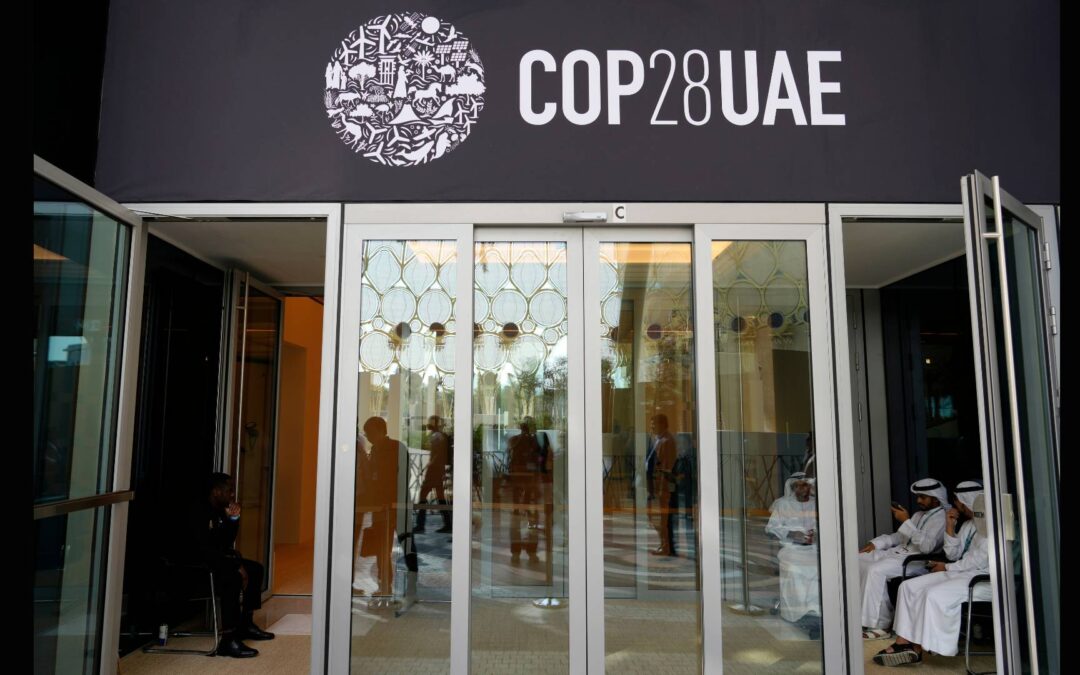
by News Decoder | 30 Nov 2023 | Climate decoders, Environment, Politics, Writing's on the Wall
COP28 begins today in Dubai. World leaders will negotiate ways to reverse carbon buildup. We give you some resources to help you make sense of it all. People gather ahead of the COP28 UN Climate Summit, Tuesday, 28 November 2023 in Dubai, United Arab Emirates. (AP...

by Susanne Courtney | 22 Sep 2023 | Climate decoders, Decoders, Economy, Educators' Catalog, Environment, Politics, World
The small island nation of Barbados is leading the call for international finance reform needed to fight the impacts of global warming. The world is listening. From the left, Prime Minister of Barbados Mia Mottley, Netherlands’ Minister of Finance Sigrid Kaag,...
June to August 2023 were the world’s hottest months on record, meaning the stakes are high to address climate change for all. This is especially true for small island nations and developing countries who do little to contribute to climate change, but disproportionately suffer its consequences. Correspondent Susanne Courtney digs into Barbados Prime Minister Mia Mottley’s plan to level the climate financing playing field in this Decoder.
Exercise: Inequities in climate financing loom large. Read the article with students, then have them explore this interactive visualization of historical greenhouse gas emissions by country and region. How does your country or region’s emissions compare to those of the world’s largest emitters? Create an infographic depicting this information, including a call to action for students to promote climate action in their local communities.
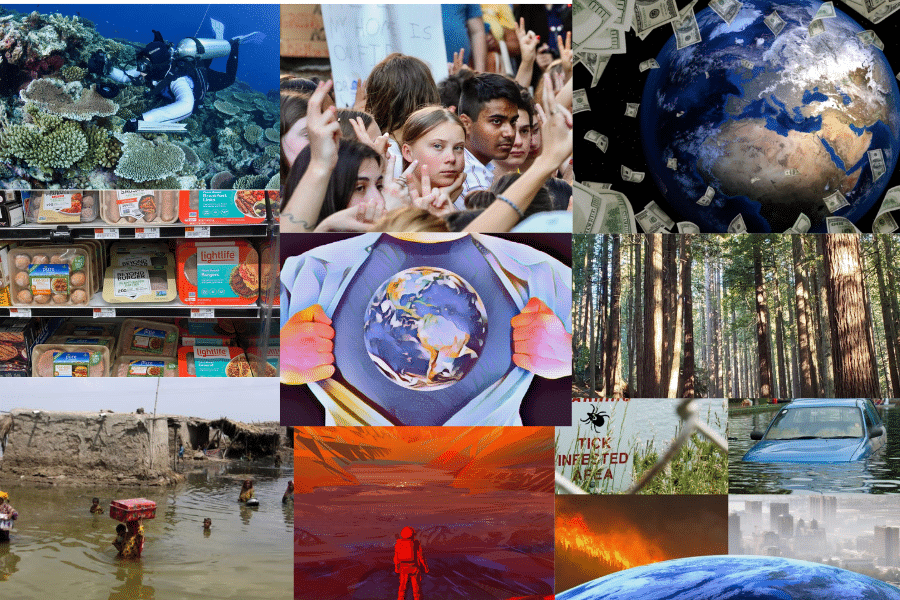
by News Decoder | 10 Jul 2023 | Climate champion profile, Climate decoders, Environment, Writing's on the Wall
Over the past year, correspondents and students across the world helped us explore climate change and the ways to slow it down and reverse it. A collage of photos from News Decoder’s Climate Decoders series. Climate change is such a big problem many people feel...
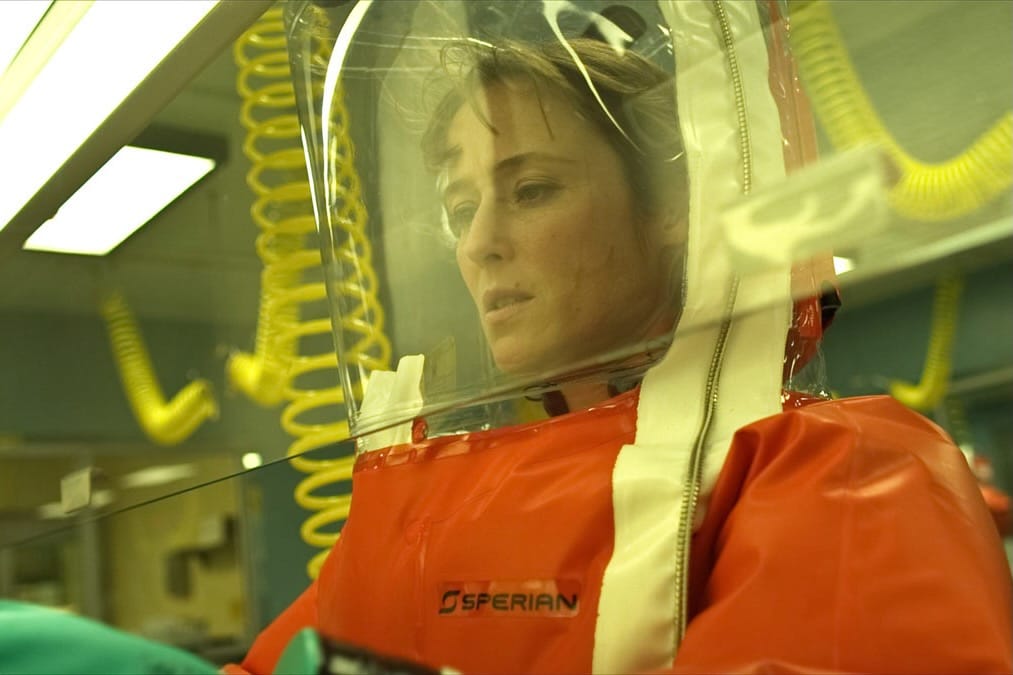
by Sarah Edmonds | 22 May 2023 | Climate decoders, Decoders, Educators' Catalog, Environment, Writing's on the Wall
In the movies, the solution for global disasters comes at the nail-biting end. Not so in real life. It won’t be The Rock that saves this rock we live on. Dr. Ally Hextall, played by Jennifer Ehle, tries to save the world from a virus in the movie Contagion. ...
In the fight against climate change, technology is often seen as a panacea that absolves corporations and individuals of the responsibility to act. The narrative reads as follows: with new technology, we can continue to live as we always have, without reducing consumption and waste. In this latest Decoder, correspondent Sarah Edmonds explains why this is not at all the case.
Exercise: The article decodes several types of climate technologies making headlines now, notably: nuclear energy, solar power, carbon capture, hydrogen and wind energy. Divide your class into five groups, each taking on one of these technologies to investigate. They should start with the information presented in the article, then conduct outside research online using reputable sources. Each group should then discuss the benefits and drawbacks of their assigned climate technology, and elect a spokesperson to share their findings with the class.

by Maggie Fox | 3 May 2023 | Climate decoders, Environment, Health and Wellness, Writing's on the Wall
There are all kinds of dangers associated with climate change. Can we still have healthy lives amid rising seas and extreme weather? Photo illustration by News Decoder. This article is one in a series of decoders examining critical aspects of climate change. They are...
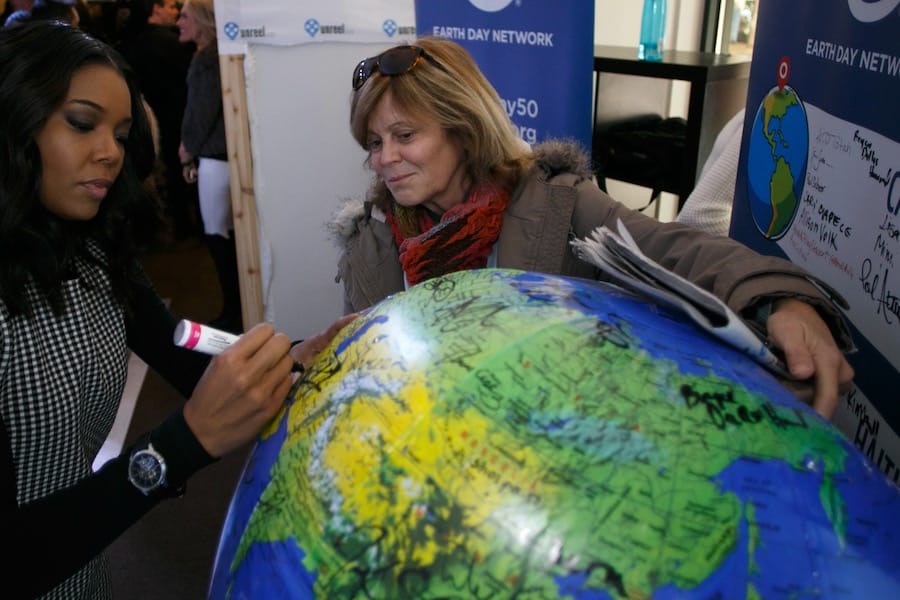
by Karolina Krakowiak | 21 Apr 2023 | Climate decoders, Educators' Catalog, Environment, Writing's on the Wall
More than half a century ago, the world began devoting one day a year to celebrate the earth. For Kathleen Rogers, that turned into a decades-long mission. Earth Day Network President Kathleen Rogers, right, looks on as actress Gabrielle Union, left, signs her name on...
In celebration of Earth Day (April 2023), we published an interview with Kathleen Rogers, president of Earth Day Network. Rogers emphasizes the importance of climate education and youth participation in ameliorating the climate crisis. Get your students involved in solutions-based actions in service of our planet.
Exercise: After reading the article, assign a climate profile task to students. Their goal: interview someone in their local community who has contributed to fighting climate change. What has this person done to promote sustainable actions? Students will then transcribe the interview and write a brief summary in a written assignment, using the News Decoder article as a model.

by Marcy Burstiner | 11 Apr 2023 | Climate decoders, Writing's on the Wall
Redwood forests have survived only in the Pacific Northwest. But these carbon suckers will grow almost anywhere with a little land and a lot of love. A path meanders through the Arcata Community Forest in Humboldt County, California. (Credit: Marcy Burstiner) This...
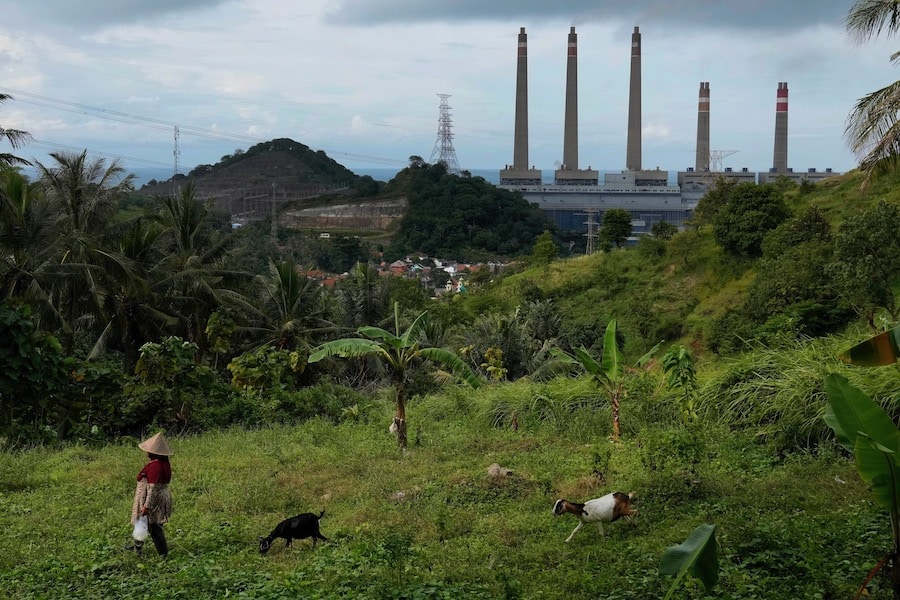
by Jonathan Thatcher | 31 Mar 2023 | Climate decoders, Writing's on the Wall
Billions in international funds have gone to weaning the populous nation off coal. But the country continues to build coal plants despite its pledge to go green. A woman leads her goats as Suralaya coal power plant looms in the background in Cilegon, Indonesia, 8...

by Enrique Shore and Marcy Burstiner | 27 Mar 2023 | Climate decoders, Decoders, Environment, World, Writing's on the Wall
Some 785 million people worldwide lack a basic drinking water supply. Experts came together at the UN to find solutions to our planet’s worsening water crisis. Delegates pose next to a sign set up outside the United Nations headquarters during the UN 2023 Water...

by Susanne Courtney | 22 Mar 2023 | Climate decoders, Decoders, Environment
We need to mitigate climate change for developing countries who have done comparatively little to harm the planet. Is there cash in the bank for that? This article is the ninth in a series of decoders examining critical aspects of climate change. They are part of a...










